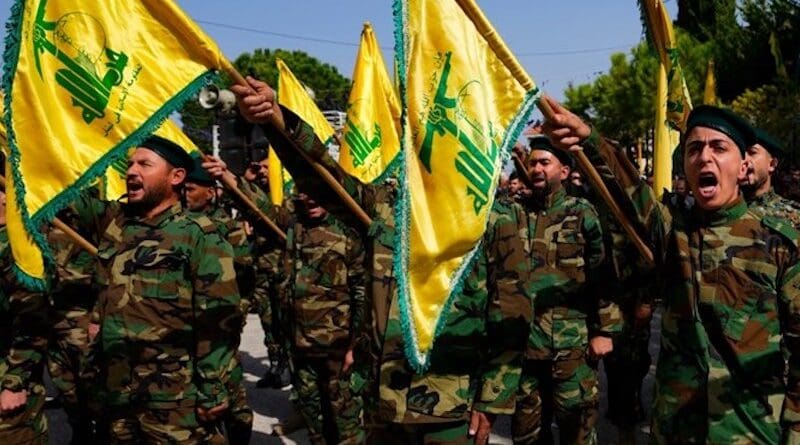Are Hezbollah And Israel On The Brink Of Open Warfare? – OpEd
By Arab News
By Ali Hamade
The military standoff between Hezbollah and Israel has intensified dramatically since Oct. 8, with recent clashes edging the two sides closer to full-scale warfare. The frequency and severity of the confrontations have surged in recent days, pushing the situation to the brink of open conflict.
When we talk about the brink of war, we mean a full-scale conflict that both Hezbollah and Israel are perilously close to. The recent surge in hostilities suggests a significant shift in the conflict’s dynamics, with both parties shedding their previous caution, potentially setting the stage for a protracted and perilous engagement.
This month’s retaliation by Hezbollah following the assassination of Abu Taleb, one of its highest-ranking field commanders, was forceful yet restrained. Israel, for its part, has been cautious not to cross any red lines. However, rising concerns center on the increasing intensity of strikes between the two parties.
Despite both Hezbollah and Israel’s apparent intent to avoid crossing dangerous thresholds, the ongoing war of attrition and the political deadlock over ending the conflict in Gaza heightens the risk of a major miscalculation by either side. Additionally, any sudden shift in the current rules of engagement could trigger a major war that neither side initially intended.
The concerned parties are closely monitoring the gradual decline in the US administration’s interest in the Gaza war. This shift is primarily due to the conflict’s diminishing importance as an element in the US presidential election campaign, as it is being overshadowed by more pressing domestic issues.
American voters are reportedly more focused on economic matters and immigration. The two leading presidential candidates are deeply engrossed in domestic politics, limiting the maneuverability of the incumbent and his administration.
The election campaign is expected to limit the Biden administration’s ability to exert pressure on conflicting parties in the region, particularly Israel. This scenario empowers the pro-Israel lobby in America to more effectively defend Israel’s stance against Hamas and hinder the Biden administration from applying more pressure on Benjamin Netanyahu’s government.
This context underscores the gravity of the upcoming period. The departure of Benny Gantz — a key moderating influence who is often seen as a US-friendly figure — from the Israeli war council has not yet sealed the fate of the Israeli government. However, Netanyahu’s dissolution of the war Cabinet could have a detrimental impact on the Lebanese front.
Lebanon is currently navigating a perilous phase, teetering precariously on the edge of the abyss. The country is threatened with becoming a major theater in a regional conflict that pits the Iran-backed Hezbollah against Israel. Israel perceives Hezbollah’s military posture, right on its doorstep, as a more profound existential threat than even Hamas in Gaza. This complex situation presents a formidable challenge not just for Israel but for the broader Western interests in the region.
Hezbollah’s recent display of military prowess on the global stage, rather than bolstering its position, may in fact be setting the stage for its potential downfall.
This heightened visibility raises concerns about the sustainability of the coexistence between Israel and Hezbollah. If not now, against the backdrop of the Gaza conflict, the likelihood of a major escalation in the coming years looms large. Such a scenario would undoubtedly escalate tensions to a catastrophic level.
Meanwhile, ordinary Lebanese citizens are grappling with a pressing question: Is it not time to halt this conflict, which poses a far greater threat to Lebanon than to Israel?
- Ali Hamade is an editorial journalist at the Annahar newspaper in Lebanon. X: @AliNahar

